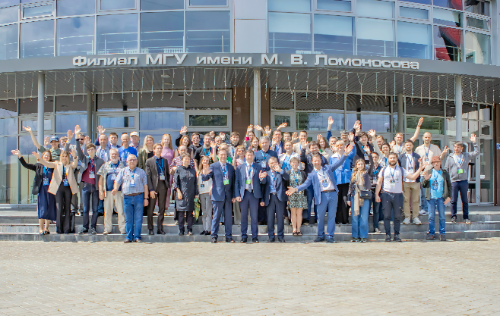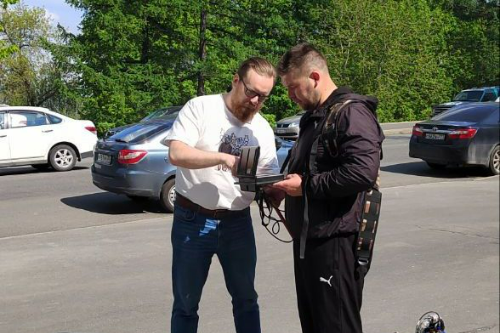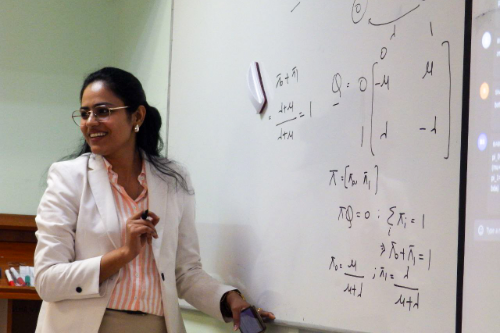These were the questions posed by Dmitry Bazegsky, Head of the Laboratory for Integrated Arctic Studies, Department for Interdisciplinary Research (DIR KarRC RAS), as the focuses for the roundtable “BRICS+ as a platform for joint research in the Arctic: challenges and prospects”.
Irina Strelnikova, Associate Professor of the School of International Regional Studies, HSE University, told about the climate as an emerging theme for BRICS+ cooperation in the Arctic. The presentation provided an overview of the BRICS countries' approaches to Arctic policy making and implementation, analyzed its main directions and pinpointed the topics that could be of mutual interest to the BRICS members.
— Climate change research can be a basis for mutually beneficial cooperation and a key to formulating the “polar agenda” of the enlarged BRICS, — the expert noted.
Researcher at the Luzin Institute for Economic Studies, Kola Science Center RAS, Yulia Zaika provided an overview of scientific research in the Arctic at the present stage and outlined the prospective research directions for the next decade. The author believes that the scientific dialogue in the region has reached a “new point”, and it would be advisable for the Russian side to utilize the opportunities afforded by the BRICS to institutionalize the cooperation.

“Green” expertise from the European Neighborhood Instrument cross-border cooperation programs 2014-2020 (case study of the Karelia CBC Program) and the potential of their application for the development of Arctic regions were the subject of the study, whose results were discussed in the presentation by staff of the Laboratory for Integrated Arctic Studies DIR KarRC RAS - its Head Dmitry Bazegsky and Senior Researcher Anastasia Vasilieva. Using data gathered through a sociological survey, the authors analyzed the experience and identified the best practices in the implementation of environmental projects in the Republic of Karelia. The scientists believe that after successful piloting of engineering and technological solutions in the Arctic zone of Russia, they can be applied also in other Arctic regions of our country.
Co-speaker on the cross-border cooperation topic was Igor Kapyrin, Acting Director of the Department of European Cooperation, Ministry of Foreign Affairs of Russia, who positively appraised the results of the study by KarRC RAS experts. In his opinion, the assessment of the outcomes of environmental projects shows the programs implemented in Russian territory have been successful and creates a good basis for disseminating the experience and developments to other regions.
— It would be worth considering expanding the scope of scientific research of the Laboratory for Integrated Arctic Studies DIR KarRC RAS to include monitoring of the implementation in the Arctic zone of the programs of other countries and alliances, including the European Union, — proposed Igor Kapyrin.

Igor Kapyrin, Acting Director, Department of European Cooperation, Ministry of Foreign Affairs of Russia

Olga Bakhmet, KarRC RAS Acting Director General
The presentations were discussed with participation of Olga Bakhmet, Acting Director General of KarRC RAS, Vladimir Chizhov, First Deputy Chairman of the Federation Council Committee on Defense and Security, Valery Shlyamin, Deputy Director of the Institute of North European and Arctic Studies of the Petrozavodsk State University.









